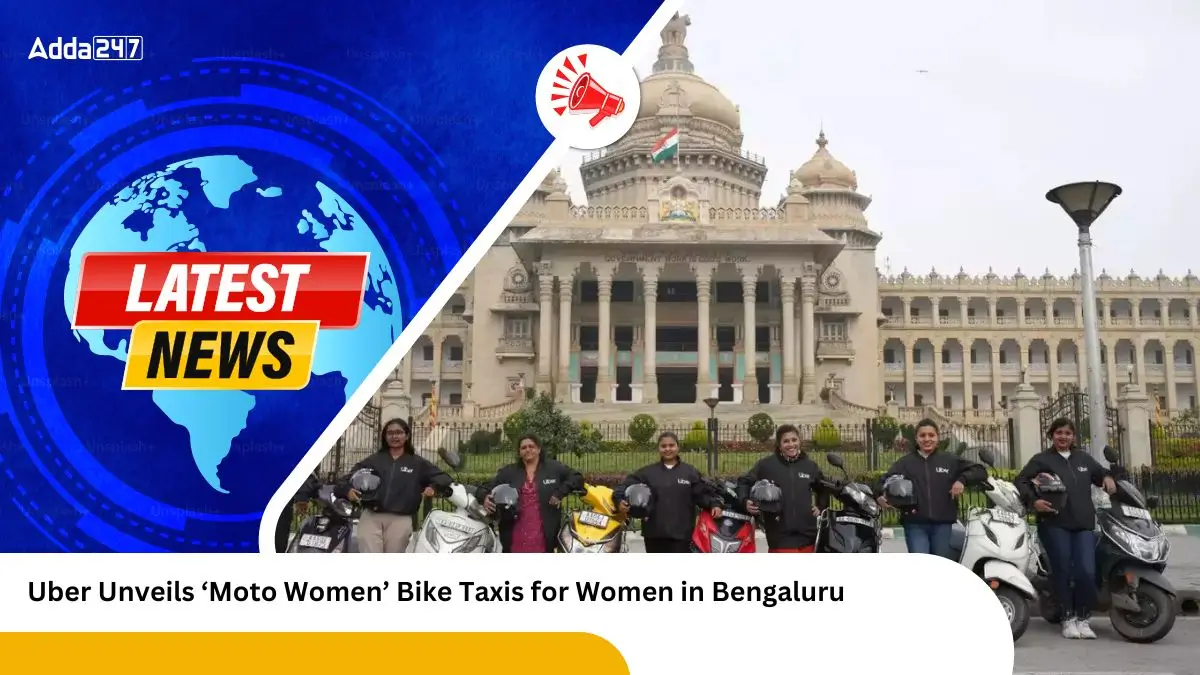In a move to enhance safety and inclusivity in urban mobility, Uber has launched a pilot program called ‘Moto Women’ in Bengaluru. This service is exclusively designed for female riders and drivers, offering an on-demand bike taxi option with an emphasis on safety and empowerment. With growing concerns over the uncertainty of bike taxi operations in Karnataka, this initiative aims to provide a safer, more flexible earning opportunity for women while addressing key issues like safety, privacy, and public transport integration.
Exclusive Service for Women
- The ‘Moto Women’ service connects female riders with female drivers, providing a more secure and comfortable transportation option.
- The initiative currently employs around 300 women drivers.
Empowerment of Female Drivers
- Uber emphasizes not just the safety of riders, but also the empowerment of women drivers, allowing them to earn flexibly in a fast-growing segment of India’s mobility sector.
- Abhishek Padhye, Uber’s Head of Regional Business Operations for India and South Asia, stated that Bengaluru is a pioneering city for innovation in urban mobility.
Significance in Urban Mobility
- The rise of bike taxis in urban India, particularly in Bengaluru, which records over 1 million rides per month, highlights the growing demand for such services.
- A KPMG report found that in 2022, over 280 million bike taxi rides were completed across platforms in India, with 65%-70% of trips focusing on first-and-last-mile connectivity, showing the importance of bike taxis in supplementing public transport.
Safety Features of Uber Moto Women
Trip Tracking and Privacy
- Riders can share their trip details with up to five trusted contacts for real-time tracking, ensuring their safety.
- The app anonymizes phone numbers and drop-off addresses to protect user privacy.
RideCheck and 24×7 Safety Helpline
- The RideCheck feature proactively monitors irregularities such as long stops, route deviations, or mid-way drops, providing timely assistance.
- Both riders and drivers have access to Uber’s 24×7 Safety Helpline for priority support when needed.
Challenges Faced by Women Drivers
Regulatory and Commission Concerns
- Women bike taxi drivers have expressed concerns over high commission rates and called for reduced charges, especially since this is a women-centric initiative.
- Some drivers, like Shilpa Vishwanath, also highlighted challenges from other transport sectors, such as auto drivers who claim bike taxis are illegal, leading to conflicts.
Support and Positive Impact
- Despite the challenges, women drivers have reported positive experiences, citing the financial benefits of the job.
- Drivers like Geetha P. have found the service beneficial for supplementing their income, with the added comfort of serving women-only passengers.
Future Outlook
Pilot Program Expansion
- The service is currently available in select locations, with plans to expand based on the success of the pilot, feedback from riders, and demand patterns.
- Uber aims to set a benchmark for inclusive urban mobility, particularly for women, with plans for scalability and wider access.
| Summary/Static | Details |
| Why in the news? | Uber Unveils ‘Moto Women’ Bike Taxis for Women in Bengaluru |
| Service Name | Moto Women |
| Target Audience | Women riders and women drivers |
| Development | Uber, in collaboration with female drivers, launched the service in Bengaluru as a pilot program. |
| Key Features | – Female riders paired with female drivers.
– 300 women drivers involved in the service. – Service includes trip tracking, privacy features, and safety helpline. |
| Safety Features | – Riders can share trip details with trusted contacts.
– RideCheck feature monitors irregularities like route deviations or long stops. – 24×7 Safety Helpline for both drivers and riders. |
| Significance | – Provides a safer transport option for women.
– Empowerment of female drivers, offering flexible earning opportunities. – Part of the growing demand for bike taxis in Bengaluru, with over 1 million monthly rides. |
| Challenges Faced by Drivers | – High commission charges, with a call for lower fees for women-centric initiatives.
– Conflicts with auto drivers over the legality of bike taxis. |
| Feedback from Drivers | – Positive impact for women drivers supplementing income, but concerns over regulatory issues. |
| Expansion Plans | – Pilot program in selected locations, with plans for future expansion based on feedback and demand. |
| Future Outlook | – Potential for scalability to enhance accessibility and strengthen inclusive urban mobility. |



 Delhi Govt. Unveils Scheme to Empower Ar...
Delhi Govt. Unveils Scheme to Empower Ar...
 Naga Community Bans Pangolin Hunting in ...
Naga Community Bans Pangolin Hunting in ...
 Uttar Pradesh Just Announced a Game Chan...
Uttar Pradesh Just Announced a Game Chan...








